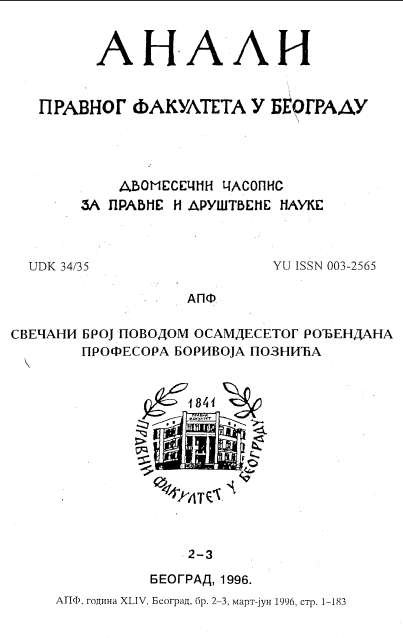О ПРАВНОМ СИЛОГИЗМУ
ON LEGAL SYLLOGISM
Author(s): Jasminka HasanbegovićSubject(s): Law, Constitution, Jurisprudence
Published by: Правни факултет Универзитета у Београду
Keywords: Logical syllogism; Formal logic; Dialectical syllogism
Summary/Abstract: Premises of a legal syllogism are not authentic because one may determine, eventually, as authentic only the wording of a norm, but not its meaning, while as far as a minor premise is concerned, it is only possible to determine partially the authenticity of the existence of facts, but not the authenticity of their significance in terms of law, namely, in terms of their evaluation. Hence, it is not possible to speak on the authenticity of a conclusion of the legal syllogism either. The premises and the conclusion of the legal syllogism are also not necessary. Due to that, a legal syllogism may be only a dialectical syllogism, namely an inference concerning the probable. Legal reasoning may acquire a syllogistic form only later on — after a legal problem, i.e. specific case, has been settled. Legal reasoning is therefore primarily a problem-solving reasoning, while legal problems are impossible to be solved by applying syllogisms. Subsequent ascribing a syllogistic form to the legal reasoning has, as such, no logical or social value at all. It may have an explicatory value, but it can not be a guarantying factor of the value of the contents of conclusions in the sphere of law.
Journal: Анали Правног факултета у Београду
- Issue Year: 44/1996
- Issue No: 2-3
- Page Range: 165-172
- Page Count: 8
- Language: Serbian

